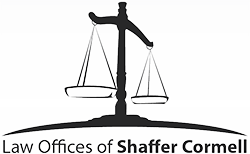First and foremost, the individual to come out of a routine traffic stop due to an actual violation of traffic law, with only a warning, be it verbal or written, is a very fortunate individual, indeed. There will be no points added to their license, tainting their official driving records for the next three years. There will be no insurance premium raises. The DMV will not be notified of this infraction. The only people who will ever know about the traffic violation warning are the violator and the police department. The warning will certainly go into the police database for the purpose of notifying another police officer of the violator’s first warning with which he or she had received before being pulled over for the same infraction, the second, short period of time.
A verbal warning is usually protocol if the violation is minor. Though the warning is verbal, a note will go into the data base record of the violator for reasons of notifying a police officer of the former infraction, if prompted. If already verbally warned, receiving a written warning can be a substitute in place of an actual record tainting ticket. This usually is the case for a driver with an otherwise clean driving record, and this is also determined if the second infraction of the traffic law by the same individual is minor as well. A warning, whether written or verbal, is technically a waived traffic ticket. The police officer gives these warnings as a wake-up call for the traffic law violator so that he or she can reflect back and determine why they were pulled over in the first place.
There are certain actions to take after getting a written warning from your neighborhood or state police officer. First, the driver should remember that the officer is merely doing his or her job. Being a police officer is just like any corporate position in which the worker would like to perform their duties as best they can. This will, therefore, lead to promotions. There are certain traffic ticket quotas in which a traffic duty police officer needs to meet. When the police officer does not give a ticket, they are taking a chance of not having another reason to pull over another car, though this is extremely rare, especially in highly populated areas.
With a warning, both verbal and written, comes an order. If the reason for receiving a written warning for a traffic violation was an outed tail light, the driver should fix it as soon as they possibly can. If the violation was swerving because of being distracted by something such as loud children or a ringing cell-phone, take action to prevent this from happening again. Speeding and texting with a cellular phone can both be easily prevented from happening again. Even if the speed was not that far over the speed limit, this should not be an option. Texting can take a life, whether that life be the driver’s, passenger’s or a driver of another vehicle. There is also driving school to consider if the driver feels that they can benefit from actions to take after getting a written warning. Taking a driver’s education refresher course may be the key to more defensive driving. This proactive action on the driver’s part will surely pay off in the end when they start practicing what they have learned from the course.

Should I notified my company know about my written warning (length)?
I truly appreciate your technique of writing a blog. I added it to my bookmark site list and will
naturally like your web site however you need to take a look at the spelling on several of your posts. A number of them are rife with spelling problems and I find it very bothersome to tell the truth on the other hand I will surely come again again.
There is definately a lot to find out about this subject. I like all the points you made
goodhere Gangbang porn vurucutewet.PPtFYALogPi